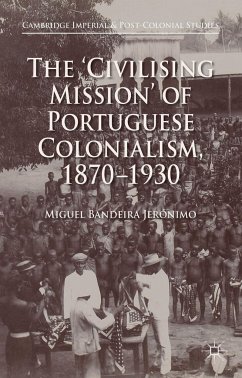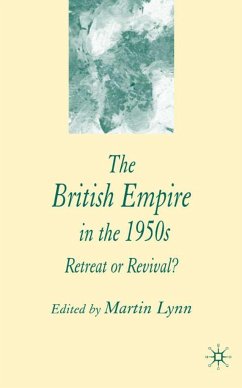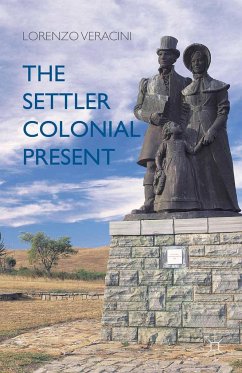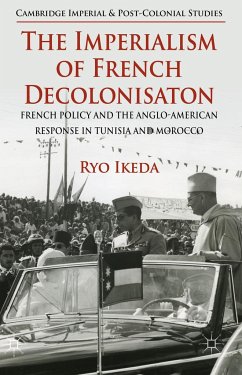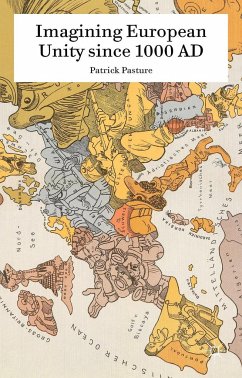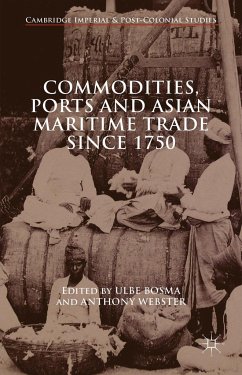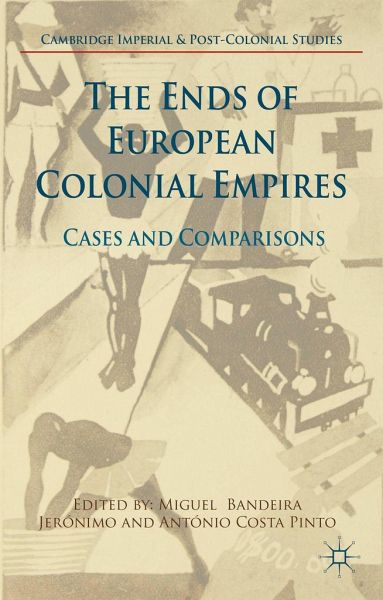
Gebundenes Buch
The Ends of European Colonial Empires
Cases and Comparisons
Herausgegeben: Jerónimo, Miguel Bandeira; Costa Pinto, António
Versandkostenfrei!
Versandfertig in 6-10 Tagen
Weitere Ausgaben:

PAYBACK Punkte
34 °P sammeln!





This volume provides a multidimensional assessment of the diverse ends of the European colonial empires, addressing different geographies, taking into account diverse chronologies of decolonization, and evaluating the specificities of each imperial configuration under appreciation (Portuguese, Belgian, French, British, Dutch).
Frederick Cooper, New York University, USA Martin Shipway, Birkbeck, University of London, UK Crawford Young, University of Wisconsin-Madison, USA Bruno Cardoso Reis, Institute of Social Sciences, University of Lisbon, Portugal Sarah Stockwell, King's College London, UK Philip Murphy, Institute of Commonwealth Studies, UK Ryan Irwin, University at Albany, USA Luís Nuno Rodrigues, ISCTE, University Institute of Lisbon, Portugal John Kent, London School of Economics and Political Science, UK John Darwin, Oxford University, UK
Produktdetails
- Cambridge Imperial and Post-Colonial Studies
- Verlag: Palgrave Macmillan / Palgrave Macmillan UK / Springer Palgrave Macmillan
- Artikelnr. des Verlages: 978-1-137-39405-7
- 2015 edition
- Seitenzahl: 288
- Erscheinungstermin: 30. März 2015
- Englisch
- Abmessung: 238mm x 149mm x 2mm
- Gewicht: 498g
- ISBN-13: 9781137394057
- ISBN-10: 1137394056
- Artikelnr.: 41645123
Herstellerkennzeichnung
Libri GmbH
Europaallee 1
36244 Bad Hersfeld
gpsr@libri.de
'In this collection two ambitious Portuguese scholars assemble an impressive cast of contributors to rethink the demise - or reconfiguration - of European power in Africa. Eschewing morality plays and polemics for historical analysis, the authors add nuance and complexity to the decolonization, the most important phenomenon of 20th century history - making their book essential reading for the growing number of students interested in this crucial topic.'
David C. Engerman, Brandeis University, USA
'It is perhaps surprising that decolonisation has remained stubbornly resistant to theorisation. Comparative analysis offers a means to redress things, making this collection especially valuable to researchers and students alike.
David C. Engerman, Brandeis University, USA
'It is perhaps surprising that decolonisation has remained stubbornly resistant to theorisation. Comparative analysis offers a means to redress things, making this collection especially valuable to researchers and students alike.
Mehr anzeigen
Interrogating the meanings of decolonisation, its local and global implications, and its material consequences both foreseen and unforeseen, the essays in this collection complement one another well.'
Martin Thomas, University of Exeter, UK
'With a range from the 1940s to the 1970s and beyond, the selection of distinguished and innovative younger historians guide the reader through conceptual issues in a way that is consistently compelling. The individual chapters are integrated into an overall, coherent account of a critical period in world history. A vital read for all those interested in the dissolution of the European colonial empires and the aftermath of decolonization.'
Wm. Roger Louis, University of Texas, USA
Martin Thomas, University of Exeter, UK
'With a range from the 1940s to the 1970s and beyond, the selection of distinguished and innovative younger historians guide the reader through conceptual issues in a way that is consistently compelling. The individual chapters are integrated into an overall, coherent account of a critical period in world history. A vital read for all those interested in the dissolution of the European colonial empires and the aftermath of decolonization.'
Wm. Roger Louis, University of Texas, USA
Schließen
Für dieses Produkt wurde noch keine Bewertung abgegeben. Wir würden uns sehr freuen, wenn du die erste Bewertung schreibst!
Eine Bewertung schreiben
Eine Bewertung schreiben
Andere Kunden interessierten sich für



